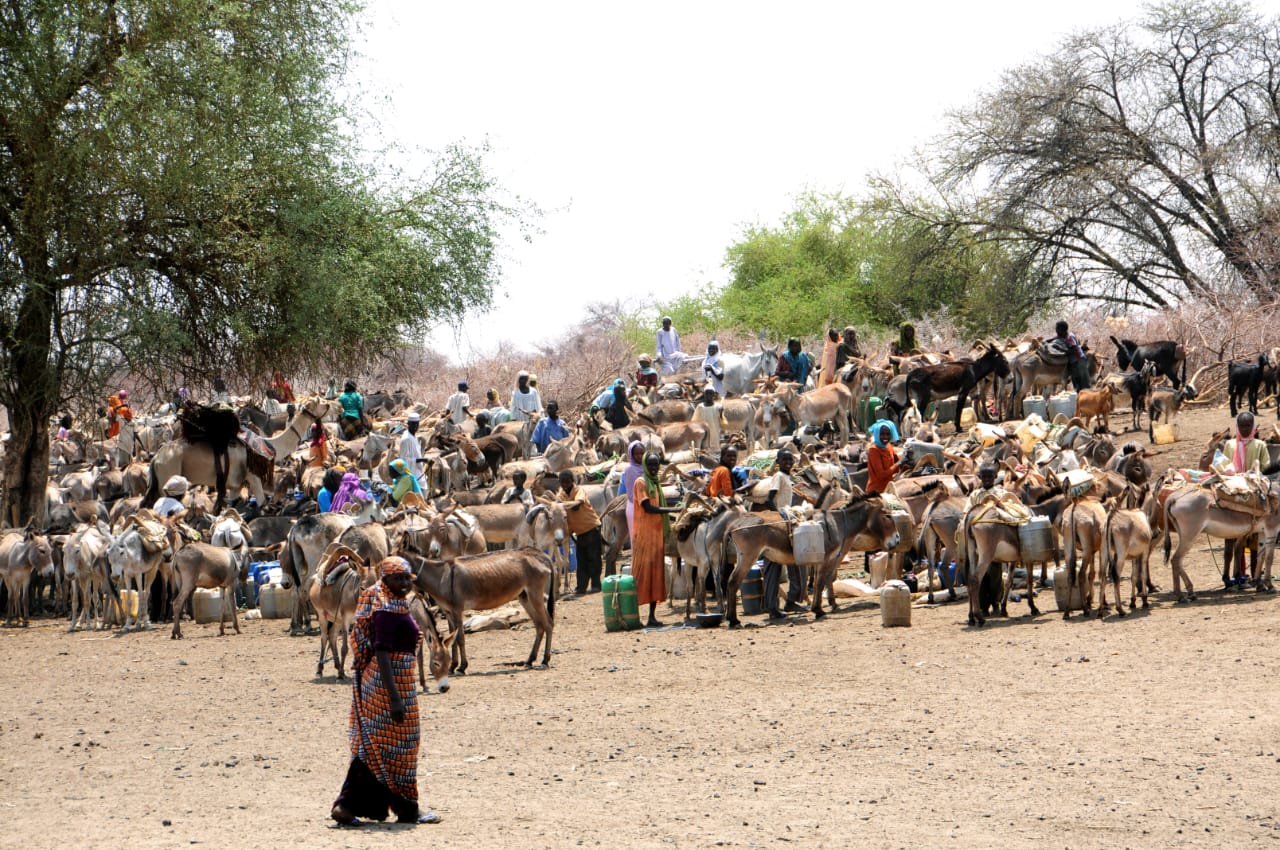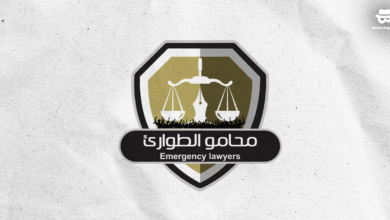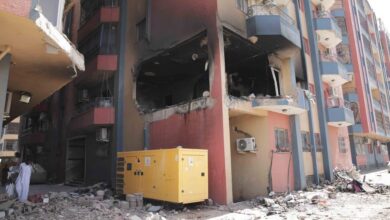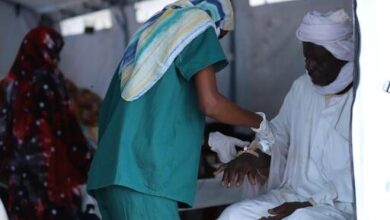North Darfur Pays the Price of War: Displacement and Hundreds of Rape Cases
Report by: Tayba Sirallah

Since the Rapid Support Forces (RSF) imposed a tight siege on the city of El Fasher in North Darfur following the announcement by the Joint Armed Movements of their withdrawal from neutrality and alliance with the army in September and November 2023, the pace of civilian displacement has intensified. Thousands have fled from the Abu Shouk and Zamzam camps, as well as from El Fasher, toward areas controlled by Abdul Wahid Mohamed al-Nur’s movement in Tawila, located in the Jebel Marra region.
Rokero locality, located north of Jebel Marra and about 100 kilometers southwest of El Fasher, has received over 700,000 displaced people fleeing the fighting in El Fasher and surrounding camps.
Urgent Need for Services
According to Adam Rajal, spokesperson for the Coordination of Displaced Persons and Refugees, those fleeing the conflict have arrived in dire need of emergency services, including food and water. He told Tag News that the influx of displaced persons continues unabated.
Rajal stated that most of the new arrivals are women, children, and the elderly who face an uncertain future, having lost access to basic life necessities. They urgently need clean drinking water, food, and medicine.
The displaced people reached the area after enduring strenuous journeys on foot and on the backs of animals, suffering from various hardships after days of travel. Rajal confirmed that large-scale mass displacement continues.
Those who arrived in areas under the control of Abdul Wahid Mohamed al-Nur’s movement bear the marks of the harassment and abuse they endured. Many arrived with no personal belongings or money.
Hunger and Thirst
Rajal emphasized that the majority suffer from hunger, thirst, and illness, in addition to severe human rights violations committed by the warring parties. These include direct killings, being prevented from leaving the camps before fighting intensified, being stripped of their possessions, beaten with whips, detained, or accused of collaborating with one or more of the conflict parties.
A source in Rokero locality reported that local communities, the civilian authority affiliated with the Sudan Liberation Movement, and a small number of humanitarian organizations are making concerted efforts to assist the victims, provide clean drinking water, and transport the sick and wounded to treatment centers.
However, the situation remains extremely dire, with some displaced individuals dying from thirst, hunger, illness, and psychological trauma.
Ongoing Displacement
According to Rajal, displaced persons have arrived from El Fasher, Zamzam, Abu Shouk, Abuja, Shaqra, Umm Hajaleej, and other areas around El Fasher. Some are still stranded in conflict zones between Shaqra, Golo, Dabba Norah, Salomaat, and all the way to Tawila. More than 17 camps have been established in the areas of Funga, Rokero, and Tawila.
The number of displaced persons is expected to increase in the coming days as more people flee death and destruction.
The wave of displacement toward areas controlled by Abdul Wahid Mohamed al-Nur escalated in March after RSF forces took control of the Zamzam camp for internally displaced persons (IDPs). RSF soldiers and allied militias committed horrific violations against civilians in the camp, prompting nearly 400,000 people to flee to El Fasher. However, El Fasher itself has been under continuous attack by the RSF, forcing thousands more to flee.
Displaced persons reported that RSF forces assaulted them en route, looted all their possessions, and that many arrived with nothing but the clothes on their backs. More than 350 people were reportedly raped during the mass flight of civilians toward the Jebel Marra region.




